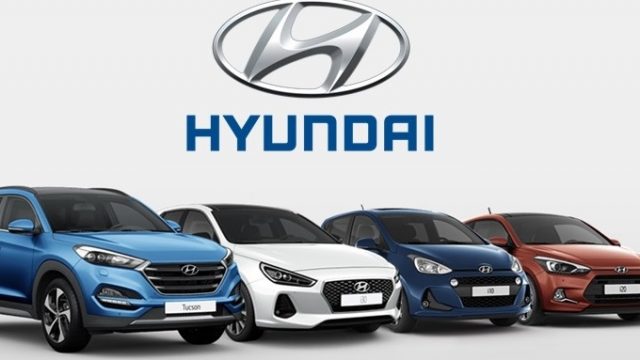The launch of Hyundai Santa Fe in Pakistan at an unjustified price tag has raised many questions regarding the company’s future plans in the local automobile industry.
In a bid to break the monopoly of the existing Japanese car manufacturers in Pakistan, the previous government had announced an Automotive Development Policy 2016-2021 which offers several incentives to the new entrants in the local auto sector. The policy was widely applauded by the investors who jumped in to sign joint ventures with the automobile manufacturing giants around the globe. Although the automotive policy has filled the void of competitors in the local industry, however, the quality of gasoline remains a big hurdle in the introduction of technologically latest and environmentally-friendly vehicles.
Hideo Takenaka, the Executive Vice President Sales and Marketing of Hyundai Nishat Motors, while talking to PakWheels at the inauguration of the first of its kind digital showroom in Pakistan, said that the country is facing a critical issue of low-quality fuel. The current situation doesn’t allow the new entrants including us to launch Euro-4 and above engine vehicles in the country. There have been a huge round of conversations in the country regarding the launch of hybrid electric vehicles including Hyundai’s Ioniq but the ground realities tell a different story. The fifth largest car producer in the world plans to bring eco-friendly cars in Pakistan but the hurdle of low-quality fuel stands in their way. Note here that last year, the local assemblers had forced the up gradation of fuel quality in the country owing to the damage it had caused to their vehicles. The quality was upgraded to RON 97 high octane petrol which is still far from being good enough for hi-tech engines. However, the up gradation made it possible for the automaker to introduce its SUV Santa Fe which is equipped with a Euro-3 engine.
Read Also: Santa Fe in Pakistan vs. Santa Fe in the rest of the world
Mr. Takenaka felt that the matter is discouraging in the long run for every new auto manufacturer in the country. On the other hand, the company is all set to introduce the first locally assembled vehicle towards the end of 2019. He further said that the country is facing an economic crisis amid the devaluation of Pakistani Rupee against the US dollar and a higher interest rate. The current production capacity of the local industry per annum is 260,000 units which is very much likely to double in number by the year 2025. Hideo Takenaka expects at least 10 new entrants in the local industry to compete against Honda, Toyota, and Suzuki. It’s important for the auto sector to flourish which is only possible under the intense amount of competition.
He told PakWheels that the mindset of the potential buyers in Pakistan had an urge to see a light commercial vehicle; something similar to Shahzore which was produced around ten years ago. Keeping in mind the consumer’s demands, the company has launched Grand Starex in the local market. According to him, there is a huge demand for SUVs in the country and the lack of choice for the consumers, add more opportunities for Hyundai to dig deep. He ensured that Hyundai will come up with unique vehicles in the future, unlike those being already produced in the country. The automaker is currently analyzing the market so that an adequate product line could be launched.
While answering a question related to the launch of 800 cc and 1000 cc cars in the country, he informed PakWheels that Hyundai is a modern premium brand that is not looking to produce cheap cars in Pakistan. However, the company may look into this segment in future but the aim would still be to launch something unique rather than what existing players are offering. It is pertinent to mention here that the venture has invested $150 million in setting up an assembling plant in Faisalabad. In a single shift, the plant has the capacity to assemble 15,000 units per annum.
In the end, the Hyundai executive added that currently the company is importing the completely built units (CBU) and the same could be done for hybrid electric versions too. But the prevailing fuel quality issues demand a compatibility check before launching the gasoline vehicles in Pakistan.
It’s clear from the words of Hyundai’s executive that the consumers in Pakistan are not going to see any low-budget vehicles any time soon. With this, the speculations regarding the launch of small-sized cars have also been ruled out. This might also be a huge blow to the expectations of consumers in Pakistan.
Related Content: Here’s a walkaround of 2019 Hyundai Santa Fe launched in Pakistan
Drop your thoughts in the comments space below. Stay connected with PakWheels for this and other automobile related latest news.

